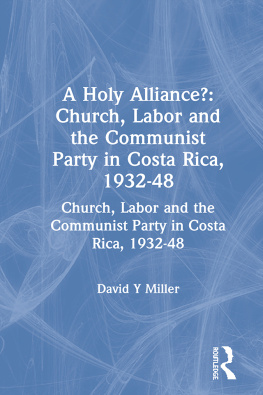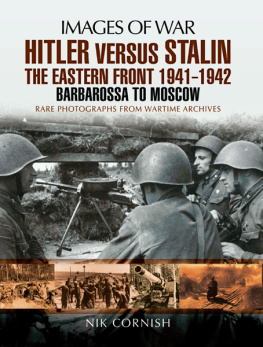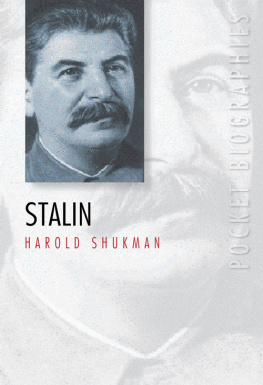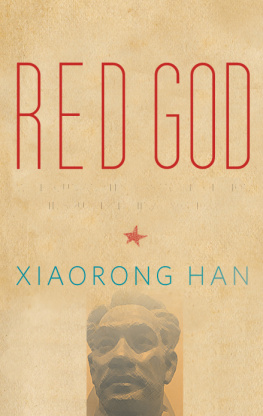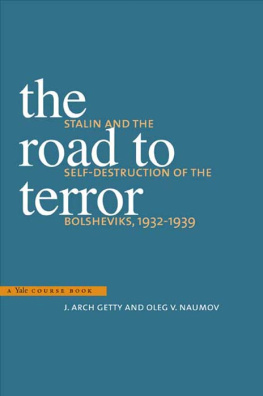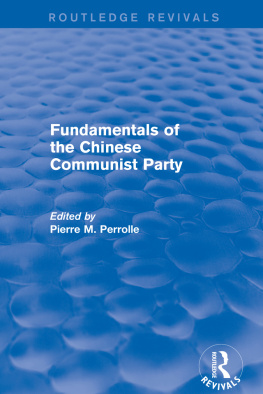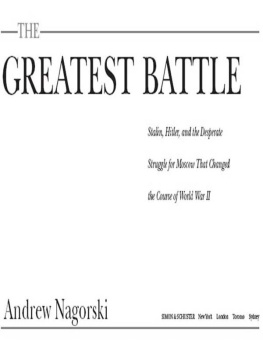Pierre Broué - Party Opposition to Stalin (1930-1932) and the First Moscow Trial
Here you can read online Pierre Broué - Party Opposition to Stalin (1930-1932) and the First Moscow Trial full text of the book (entire story) in english for free. Download pdf and epub, get meaning, cover and reviews about this ebook. City: Columbus, OH, year: 1990, publisher: Slavica Publishers, genre: History. Description of the work, (preface) as well as reviews are available. Best literature library LitArk.com created for fans of good reading and offers a wide selection of genres:
Romance novel
Science fiction
Adventure
Detective
Science
History
Home and family
Prose
Art
Politics
Computer
Non-fiction
Religion
Business
Children
Humor
Choose a favorite category and find really read worthwhile books. Enjoy immersion in the world of imagination, feel the emotions of the characters or learn something new for yourself, make an fascinating discovery.

- Book:Party Opposition to Stalin (1930-1932) and the First Moscow Trial
- Author:
- Publisher:Slavica Publishers
- Genre:
- Year:1990
- City:Columbus, OH
- Rating:4 / 5
- Favourites:Add to favourites
- Your mark:
- 80
- 1
- 2
- 3
- 4
- 5
Party Opposition to Stalin (1930-1932) and the First Moscow Trial: summary, description and annotation
We offer to read an annotation, description, summary or preface (depends on what the author of the book "Party Opposition to Stalin (1930-1932) and the First Moscow Trial" wrote himself). If you haven't found the necessary information about the book — write in the comments, we will try to find it.
Pierre Broué: author's other books
Who wrote Party Opposition to Stalin (1930-1932) and the First Moscow Trial? Find out the surname, the name of the author of the book and a list of all author's works by series.
Party Opposition to Stalin (1930-1932) and the First Moscow Trial — read online for free the complete book (whole text) full work
Below is the text of the book, divided by pages. System saving the place of the last page read, allows you to conveniently read the book "Party Opposition to Stalin (1930-1932) and the First Moscow Trial" online for free, without having to search again every time where you left off. Put a bookmark, and you can go to the page where you finished reading at any time.
Font size:
Interval:
Bookmark:
From Sochi, on 25 September 1936, J. V. Stalin and A. A. Zhdanov addressed a telegram to the other members of the Politburo stating:
Yagoda has definitely proved himself to be incapable of unmasking the Trotskyite-Zinovievite bloc. The OGPU is four years behind in this matter.1
The same charge was formulated in the resolution approved by the February-March session of the Central Committee of the All-Union Communist Party (Bolsheviks):
The People's Commissariat of Internal affairs has fallen behind at least four years in the attempt to unmask these most inexorable enemies of the people.2
Everybody is aware today that there was not, in the thirties, a "terrorist bloc" of "harmful activity, diversion and espionage of the Japanese-German-Trotskyite agents" carried out by the Old Bolsheviks and defendants of the Moscow Trials. But recent discoveries, first in the Trotskii Papers (former "closed part") in the Houghton Library, then in the Nicolaevsky Collection in the archives of the Hoover Institution at Stanford, have taught us that in 1932, that is to say four years before the trials, a "bloc of the oppositions" was organized, which was initially a "Trotskiite-Zinov'evite bloc" and that it was destroyed, without its presence being realized by the routine repression of its members. This evidence suggests that the existence of such a bloc was discovered only during the investigations in preparation for the First Moscow Trial. The charges against the so-called "terrorists" in the First Moscow Trial were really charges against the members of this "political bloc," depicted as a "terrorist bloc" by the procurator and the defendants themselves.3
The first document found in Trotskii's archives is an undated Fall 1932) report by Trotskii's son, Lev Sedov, written in chemical ink, informing Trotskii of the constitution of a bloc composed of Trotskiists, Zinov'evists, former Trotskiites called "capitulators" around I. N. Smirnov, and the Lominadze-Sten group, and that negotiations were in progress, not only with a Zinov'evist dissident group headed by Safarov and Tarkhanov, but also with the so-called "Riutin group." We also learn through Trotskii's answer to his son of a subsequent discussion between father and son about the question of the validity of the slogan "Down with Stalin!" and the relation to be developed with the "liberals" (Smirnov group) and the "rightists" (Riutin or rather the Riutin-Slepkov group). The messenger sent by I. N. Smirnov to L. L. Sedov in Berlin in 1932 was was E. S. Holzman, who was to be one of the defendants during the First Moscow Trial. He was to confess later that he had met Trotskii and Sedov in Copenhagen, where Sedov had never been.
Some documents found in Sedov's Papers in Hoover cast useful supplementary light on the case. For the first time, we learn something about the man who was depicted by procurator Vyshinskii and some of the defendants as the one who brought the terrorist directives from Trotskii to the USSR, that is Iuri Petrovich Gavenis (sometimes Gaven), an Old Bolshevik working in Gosplan. Gavenis never appeared on the bench of defendants but was later shot, according to Roy Medvedev, carried out on a stretcher, after having been savagely tortured, and having refused to make a "confession." In 1936 Trotskii and Sedov denied having had any contact with him. In fact, they had. Allowed to go to Germany in order to received medical care, Gavenis wrote to Trotskii and got an interview with Lev Sedov who wrote an account of it. Gavenis gave information about the bloc, supplementing Holzman's. He also gave information about his own "O"-group (probably Osinskii) and seems to have agreed to bring back to the Soviet Union a message to the Trotskiite group itselfin spite of his worry about the latter having been infiltrated by OGPU. The correspondence between Trotskii and Sedov demonstrates that father and son were astounded at the beginning of the trial when they saw that Smirnov and Holzman, already guilty in Stalin's eyes, did not content themselves with confessing the truth but accused themselves of fantastic crimes.4 Sedov at first wondered whether he should tell the truth, publicly, but finally decided to deny everything, except proven contacts, which seemed to him the only way of hindering the annihilation of the defendants. All these persons can be traced in the Trotskii-Sedov correspondence under the following pseudonyms: "Ko," "Kolokoltsev" or "Kolokolnikov" for I. N. Smirnov, "Orlov" for E. S. Holzman, "Sorokin" for Gavenis. Lev Sedov was the first to understand that Gavenis had refused to confess, which explained his absence among the defendants in front of the court.
There is today a trend which appears in the Western historiography of the thirties and is best expressed by the works of J. Arch Getty. From an excellent consideration of sources, criticism of the testimonies, establishes of the lack of first-hand accounts for the "political" version of the emigres (and especially of the Menshevik historian B. I. Nicolaevsky), Professor Getty and other distinguished authors seriously question the validity of several interpretations of the internal party opposition, beginning with the Riutin affair. Before criticizing what he wrote, I must acknowledge the merit of Professor Getty who is the first and, as far as I know, the only one to have mentioned, in his own work, an article of mine which contradicts some of his views.
Here are the three texts found by the Leon Trotskii Institute team in 1980 during our investigation of the Trotskii Papers in the Houghton Library. The first is Sedov's letter written in chemical ink, date unknown, probably the end of September 1932:
The (...) has been organized. It includes the Zinovievites, the Sten-Lominadze group and the Trotskyites (former "c............."). The Safar.-Tarkhan. group have not formally joined yettheir position is too extreme; they will join very soon. Z and K's declaration about the very serious mistake they made in '27 was made during negotiations with us about the bloc, just before Z and K's deportation.
The collapse of I. N. (.........), Preobrazh. and Uf. group (the three of them belonged to the center) was caused by a sick, half-distracted man. He had been arrested by accident and started talk. No document could be found at I. N.'s of the others what could be "Trotskyite literature." A few days before he was arrested, I. N. said to our informer: "X has betrayed. I am expecting to be arrested any day." Thanks to the presence of his Markovkin who had thoroughly informed him, he was ready. Unfortunately, I. N. did not have time to convey the information."
The informer asserts there had been no mistake from abroad, or links with abroad.
If there are any important points at issue, I will wire before Thursday (according to instructions).
The collapse of the "Old People" is a bad blow but the links with the workers have been preserved.5
Of course, the words deleted are "bloc," "capitulators," "Smirnov." "Safar." means Safarov, "Tarkhan." Tarkhanov, "Z" Zinov'ev, "K" Kamenev, "Preobrazh." Preobrazhenskii, "Uf." N. I. Ufimtsev. "His Markovkin" seems to be an OGPU man connected with Smirnov and "the informer" is obviously E. S. Holzman. "Old People" means Grunstein, who had capitulated recently.
Trotskii answered in the middle of October:
1) My letter home had already been written before I got yours referring to Kol. The letter was obviously for the Left Opposition, in the true meaning of the word. But you may show it to the Informer in order to give him an idea of my point of view.
2) The proposal of a bloc seems to me altogether reasonable. I insist on the fact that it is a bloc and not a unification.
Font size:
Interval:
Bookmark:
Similar books «Party Opposition to Stalin (1930-1932) and the First Moscow Trial»
Look at similar books to Party Opposition to Stalin (1930-1932) and the First Moscow Trial. We have selected literature similar in name and meaning in the hope of providing readers with more options to find new, interesting, not yet read works.
Discussion, reviews of the book Party Opposition to Stalin (1930-1932) and the First Moscow Trial and just readers' own opinions. Leave your comments, write what you think about the work, its meaning or the main characters. Specify what exactly you liked and what you didn't like, and why you think so.

